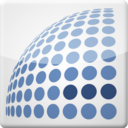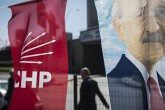The three-session conference was organized as an annual conference by Insight Turkey, an English-language quarterly academic journal published by the SETA Foundation, in cooperation with the Faculty of Political Sciences, University of Belgrade.
Delivering a keynote speech at the conference, Gökhan Çetinsaya, chief advisor to the Prime Ministry, said that in the last two centuries, Turkey has faced three major challenges, namely: regional challenges with the Russian Empire; the emergence of nationalism, and financial dependency on the West. Çetinsaya emphasized that Turkey has gradually become more active in foreign policy by overcoming these challenges, and making reforms that move with the changing security environment. Touching on Turkish-Serbian bilateral relations, Çetinsaya underlined the importance of relations in terms of regional stability in the Balkans. “Turkish-Serbian bilateral, regional and international initiatives will play an important role in our future,” he added.
The first session of the conference was called “Party Politics & Political Transformation in Turkey and Serbia.” Speaking at the session, Galip Dalay, research director of al-Sharq Forum, said that there is a new political model in Turkey that was introduced in 2002 and the concept of “New Turkey” has emerged as a result of this new political model. Claiming that there is no rupture in Turkey’s democratization process, Dalay said that the deputy candidate list of all the political parties for the upcoming June 7 general election can be seen as proof of a continuation of the democratization process. “For the first time in Turkey’s history, political parties represent their deputy candidates from a Kurdish background, from Alevi and Roma communities, and also from the minorities, an example of the pluralism in their party. Despite criticism, even this single example reveals that Turkey’s democratization process continues to evolve,” he said. Commenting on the remarks, SETA President Burhanettin Duran from İstanbul Şehir University said that with a new voice of Turkey, the country is becoming a regional power while consolidating its own democracy.
Regarding Serbia’s political transformation, President of Active Serbia and Political Analyst, Dusan Janjic, said that political parties are not the main players in the political transformation. Touching on the issue of Kosovo, Janjic said that Serbia has to face it. “Kosovo is a serious task and a challenge for Serbia. Serbia has to face the Kosovo issue. That is the only way for Serbia to survive,” Janjic said.
Head of Research Services in Parliament, Ahmet Yıldız, spoke on Turkey’s Kurdish issue and the recent reconciliation process. Yıldız described the reconciliation process as the most radical step in Turkish democracy, and said that there is a need to consider collective rights.
The second session, entitled “Foreign Policies of Turkey and Serbia: Convergences , Divergences and Possible for Cooperation,” began with a presentation by SETA Researcher Dr. Mehmet Uğur Ekinci. Speaking on Turkey’s approach to the western Balkans and Serbia, Ekinci said that during the 1990s Turkey was not able to implement its vision in theBalkans due to domestic crises. However, he added Turkey’s effectiveness increased during the Justice and Development Party (AK Party) period. Mentioning the Turkey-Serbia-Bosnia Trilateral mechanism, Ekinci said that the mechanism had a good basis, but was negatively affected by some unrelated, sometimes non-political, incidents. Regarding the future of bilateral relations, Ekinci underlined that he expects a considerable improvement in relations in the near future in political, economic and social terms.
Professor Dragan Simic from the Faculty of Political Sciences of Belgrade, spoke on Serbia’s contemporary foreign policy vision and priorities, saying that Serbian foreign policy is in the service of the economy and described achieving EU membership as one of Serbia’s mo


